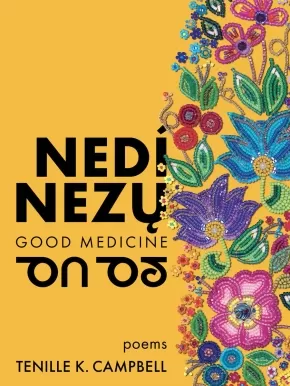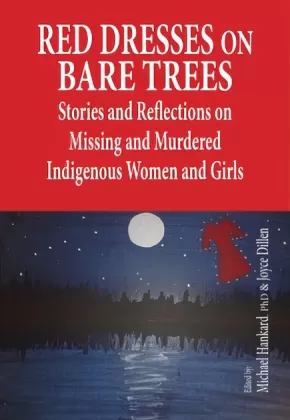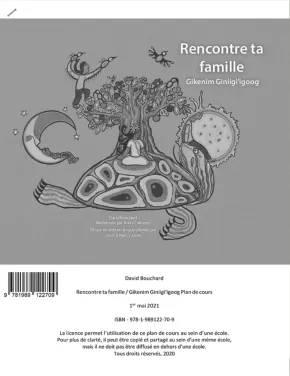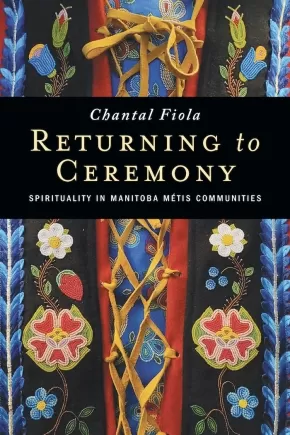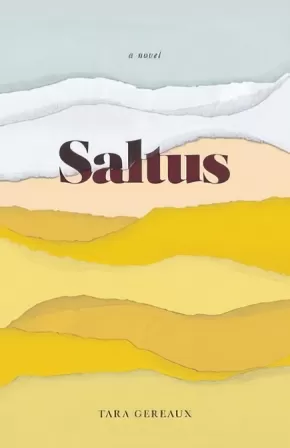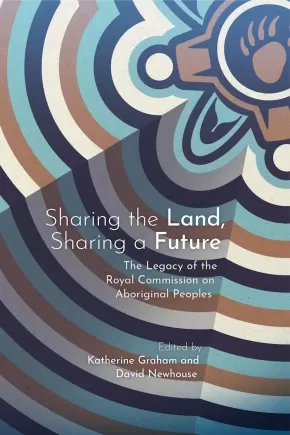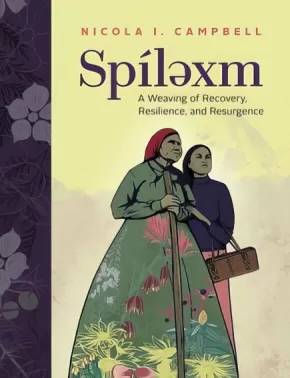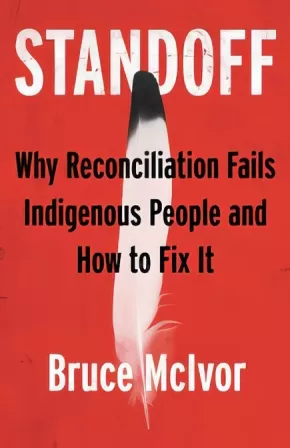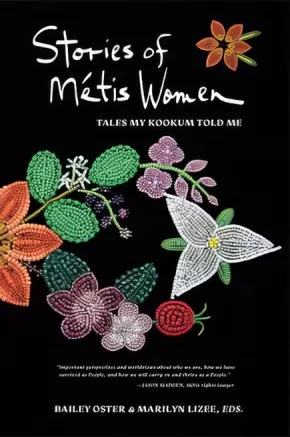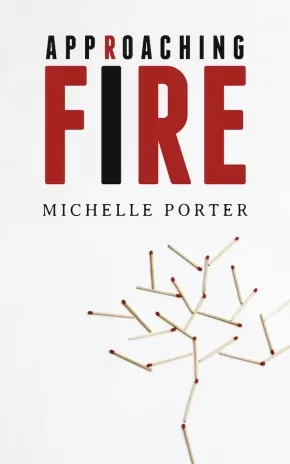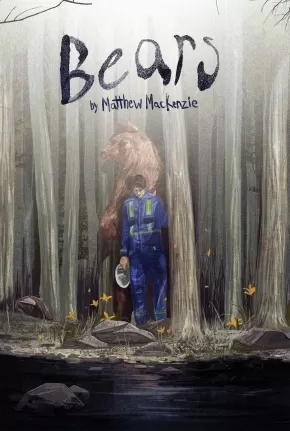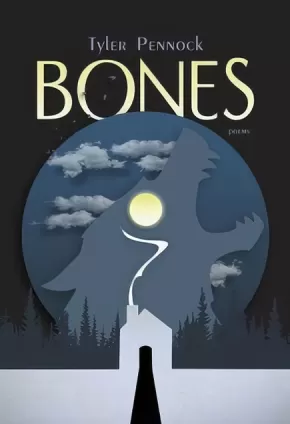
Métis
121
-
135
of
209 Results;
Sort By
Go To
of 14
Literatures, Communities, and Learning: Conversations with Indigenous Writers
$29.99
Format:
Paperback
Text Content Territories:
Indigenous Canadian;
ISBN / Barcode: 9781771124508
Synopsis:
Synopsis:
Literatures, Communities, and Learning: Conversations with Indigenous Writers gathers nine conversations with Indigenous writers about the relationship between Indigenous literatures and learning, and how their writing relates to communities.
Relevant, reflexive, and critical, these conversations explore the pressing topic of Indigenous writings and its importance to the well-being of Indigenous Peoples and to Canadian education. It offers readers a chance to listen to authors’ perspectives in their own words.
This book presents conversations shared with nine Indigenous writers in what is now Canada: Tenille Campbell, Warren Cariou, Marilyn Dumont, Daniel Heath Justice, Lee Maracle, Sharron Proulx-Turner, David Alexander Robertson, Richard Van Camp, and Katherena Vermette. Influenced by generations of colonization, surrounded by discourses of Indigenization, reconciliation, appropriation, and representation, and swept up in the rapid growth of Indigenous publishing and Indigenous literary studies, these writers have thought a great deal about their work.
Each conversation is a nuanced examination of one writer’s concerns, critiques, and craft. In their own ways, these writers are navigating the beautiful challenge of storying their communities within politically charged terrain. This book considers the pedagogical dimensions of stories, serving as an Indigenous literary and education project.
Educator Information
Educators teaching Indigenous literatures will be interested in this book as a resource / topical.
Introduction addresses controversies such as appropriation and debates around authors such as Joseph Boyden gives Indigenous writers an opportunity to address direct questions around why writing matters to them and their communities.
Table of Contents
Acknowledgements
Introduction: Writing-in-Relation
“Being able to tell stories from the North” / A Conversation with Richard Van Camp
“It starts from a place of knowledge and truth” / A Conversation with David Alexander Robertson
“I realized that I could write what I see” / A Conversation with Katherena Vermette
“It comes back to relationship” / A Conversation with Warren Cariou
“That’s the purpose of story” / A Conversation with Lee Maracle
“I hope my writing can help others” / A Conversation with Sharron Proulx-Turner
“Indigenous literatures matter” / A Conversation with Daniel Heath Justice
“A beautiful bomb” / A Conversation with Tenille Campbell
“To write myself back into visibility” / A Conversation with Marilyn Dumont
Conclusion: Listening to Writers
Notes
Bibliography
Additional Information
200 pages | 6.00" x 9.00"
Me Tomorrow: Indigenous Views on the Future
$22.95
Editors:
Format:
Paperback
Text Content Territories:
Indigenous Canadian; First Nations; Inuit; Métis;
Reading Level: N/A
ISBN / Barcode: 9781771622943
Synopsis:
Synopsis:
First Nations, Métis and Inuit artists, activists, educators and writers, youth and elders come together to envision Indigenous futures in Canada and around the world.
Discussing everything from language renewal to sci-fi, this collection is a powerful and important expression of imagination rooted in social critique, cultural experience, traditional knowledge, activism and the multifaceted experiences of Indigenous people on Turtle Island.
In Me Tomorrow:
Darrel J. McLeod, Cree author from Treaty-8 territory in Northern Alberta, blends the four elements of the Indigenous cosmovision with the four directions of the medicine wheel to create a prayer for the power, strength and resilience of Indigenous peoples.
Autumn Peltier, Anishinaabe water-rights activist, tells the origin story of her present and future career in advocacy—and how the nine months she spent in her mother’s womb formed her first water teaching. When the water breaks, like snow melting in the spring, new life comes.
Lee Maracle, acclaimed Stó:lō Nation author and educator, reflects on cultural revival—imagining a future a century from now in which Indigenous people are more united than ever before.
Other essayists include Cyndy and Makwa Baskin, Norma Dunning, Shalan Joudry, Shelley Knott-Fife, Tracie Léost, Stephanie Peltier, Romeo Saganash, Drew Hayden Taylor and Raymond Yakeleya.
For readers who want to imagine the future, and to cultivate a better one, Me Tomorrow is a journey through the visions generously offered by a diverse group of Indigenous thinkers.
Additional Information
224 pages | 5.50" x 8.50" | Paperback
nedi nezu (Good Medicine) (8 in Stock) - On Sale!
$12.57 $17.95
Format:
Paperback
Text Content Territories:
Indigenous Canadian;
Grade Levels: University/College;
ISBN / Barcode: 9781551528465
Synopsis:
Synopsis:
A celebratory, slyly funny, and bluntly honest take on sex and romance in NDN Country.
nedi nezu (Good Medicine) explores the beautiful space that being a sensual Indigenous woman creates - not only as a partner, a fantasy, a heartbreak waiting to happen but also as an auntie, a role model, a voice that connects to others walking the same path. From the online hookup world of DMs, double taps, and secret texts to earth-shakingly erotic encounters under the northern stars to the ever-complicated relationship Indigenous women have with mainstream society, this poetry collection doesn't shy away from depicting the gorgeous diversity in decolonized desire. Instead, Campbell creates the most intimate of spaces, where the tea is hot and a seat is waiting, surrounded by the tantalizing laughter of aunties telling stories.
These wise, jubilant poems chronicle many failed attempts at romance, with the wry humour needed to not take these heartbreaks personally, and the growth that comes from sitting in the silence of living a solo life in a world that insists everyone should be partnered up. With a knowing smile, this book side-eyes the political existence and celebrates the lived experience of an Indigenous woman falling in love and lust with those around her -but, most importantly, with herself.
nedi nezu is a smart, sensual, and scandalous collection dripping in Indigenous culture yet irresistible to anyone in thrall to the magnificent disaster that is dating, sex, and relationships.
Reviews
"Since I was hit on by someone using lines from #IndianLovePoems and immediately went out to buy it, I've been eagerly waiting for Tenille K. Campbell's next collection. What a joy and a blessing to find myself in pages as intimate as staying up late with your best friend sharing truths, as hot as meeting your next lover's gaze, and as sharp as a mean auntie. nedi nezu cements Campbell's reputation as the matriarch of decolonized desire." -Eden Robinson, author of Trickster Drift
"There are many kinds of intimacy in Tenille Campbell's delicious second collection: that of laughing lovers entangled in damp sheets under the star-strewn northern sky; that of a Dene/Metis woman dreaming her relations with the living land, its histories, and its futures; that of a formidably talented woman in all her complex contexts - poet, scholar, mother, lover - who shifts with ease between evocations of knee-trembling desire, wry humour, tender kindness, and aching loneliness. The poems are a love-language that honours the messy, meaningful complexities of sensual self-determination, the fierce assertion of an Indigenous woman's embodied and visionary power. We are lucky indeed to have the restorative gift of Campbell's work in this ever more alienating world. Read it, share it, be transformed." -Daniel Heath Justice, author of Why Indigenous Literatures Matter
"Dare we all have such an opportunity to revel in the intimate oratories of Tenille K. Campbell's matriarchy. She asks us to 'know that we are in ceremony' as she undertakes an album of sensual and sexual vignettes rinsed clean of seeds in gentle spring waters. Alternatively, she interrogates fatphobia, Indigenous masculinities, academia, heteropatriarchy, and untangles the ways in which poetry hinges on the pervasive in the stratosphere of social media. Campbell shows us yet again why Indigeneity is wholly and irrevocably erotic by nature." -Joshua Whitehead, author of Jonny Appleseed
Educator Information
Caution: Mature language.
Additional Information
92 pages | 6.00" x 8.00"
Red Dresses on Bare Trees: Stories and Reflections on Missing and Murdered Indigenous Women and Girls (3 in Stock, Out of Print)
$33.00
Format:
Paperback
Text Content Territories:
Indigenous Canadian;
Reading Level: N/A
ISBN / Barcode: 9781926476520
Synopsis:
Synopsis:
This book deals with Missing and Murdered Indigenous Women and Girls, an extremely painful topic—one that we struggled at times to write or think about, and it raises some painful memories and feelings, not only for us but particularly those whose stories and reflections are within it.
The book includes essays and reflections by both men and women, because it seeks to help bring balance to our collective, equally important and unique, roles and responsibilities. It hopes to incorporate Indigenous knowledge principles about relationships and love in the hope that we can begin to emulate and live our lives in balance. In this circle, we begin in the eastern direction with respect—seeing someone from all sides, and having ‘1,000 cups of tea’ with them; moving into time in the south where we must physically, mentally and spiritually sit and spend time with someone; then to empathy or feeling in the west where our connection to a person is strong enough so we hurt when they are hurting; then finally, into the gift of movement, where caring behaviour in the northern direction drives us to actually do something about it.
Reviews
"It is uncanny how all these writers’ contributions came together in one book. It gives such a comprehensive observation of historical and current systems that create these vulnerabilities. I have to admit, I felt anger rise up in me at all these injustices. This is an important work for anyone in Canada, and will be especially useful to policymakers. Well done! You have just changed the world." - Lorraine Rekmans
"This book is a highly recommended read for persons desiring to hear truth, and to work toward genuine and responsive reconciliation with Indigenous Peoples." - Barbara Waterfall, PhD
Educator Information
Table of Contents
Acknowledgements
Table of Contents
Foreword
Introduction
1. Colonization, ‘Truth,’ and ‘Reconciliation’ for Indigenous Women and Girls?
By: Kelly M. Bugler, John G. Hansen, & Michael Hankard
2. Taking Me Home: The Life of Mere Hiki
By: Taima Moeke-Pickering
3. Traveling the Spirit Road: Anna Mae Pictou Aquash
By Cynthia Landrum
4. How Are Indigenous Women’s Experiences of Policing and Homelessness Linked to MMIWG?
By: Carol Kauppi & Rebecca Schiff
5. Indigenous Responses to Gendered and Colonial Violence: A View from Baawaating
By: Vivian Jiménez-Estrada &Eva Dabutch
6. Walking the Sweetgrass Road Together
By: Michael Hankard
7. Rites of Passage: Building Strength and Resilience
By: Joey-Lynn Wabie
8. Colonial Exceptionalism and the MMIWG Genocide: Bringing Words of the Silent to the Ears of the Deaf
By: Nawel Hamidi
9. Shinning the Light Into Dark Places: Going Beyond Statistics and Literature Reviews and into the Humanity of MMIWG
By: Sharon L. Acoose, & John E. Charlton
About the Authors
Table 1. Aboriginal Offender Statistics
Graphic 1. Mere Hiki
Additional Information
Pages: 150 | Size: 6” x 9” | Paperback
Rencontre ta famille plan de cours (LP)
$7.99
Artists:
Format:
Paperback
Text Content Territories:
Indigenous Canadian; First Nations; Anishinaabeg; Ojibway;
ISBN / Barcode: 9781989122709
Synopsis:
Synopsis:
This Teacher Lesson Plan accompanies the book Rencontre ta famille. Includes comprehension questions, group activities, wordsearch, colouring pages etc. Mother Earth, we come from her, we go to her, without her we wouldn't be here, she gives all of us life and because of her we are all one family. In many segments of Indigenous life we speak of Mother Earth, Father Sky, Grandfather Sun, and Grandmother Moon. Meet Your Family is a rhythmic poem that will enlighten readers on how to view these important figures and share a greater concept of seeing the world as our natural family.
Rencontre ta famille is presented in both French and Ojibway. An additional softcover book written in Ojibway with a phonetics guide is included inside this hardcover book.
Educator Information
This is the teacher lesson plan for Rencontre ta famille.
This teacher lesson plan is also available in English: Meet Your Family Teacher Lesson Plan
Additional Information
12 pages | 8.50" x 11.00"
Returning to Ceremony: Spirituality in Manitoba Métis Communities
$27.95
Format:
Paperback
Text Content Territories:
Indigenous Canadian; Métis;
Grade Levels: University/College;
ISBN / Barcode: 9780887559624
Synopsis:
Synopsis:
Returning to Ceremony is the follow-up to Chantal Fiola’s award-winning Rekindling the Sacred Fire and continues her ground-breaking examination of Métis spirituality, debunking stereotypes such as “all Métis people are Catholic,” and “Métis people do not go to ceremonies.” Fiola finds that, among the Métis, spirituality exists on a continuum of Indigenous and Christian traditions, and that Métis spirituality includes ceremonies. For some Métis, it is a historical continuation of the relationships their ancestral communities have had with ceremonies since time immemorial, and for others, it is a homecoming—a return to ceremony after some time away.
Fiola employs a Métis-specific and community-centred methodology to gather evidence from archives, priests’ correspondence, oral history, storytelling, and literature. With assistance from six Métis community researchers, Fiola listened to stories and experiences shared by thirty-two Métis from six Manitoba Métis communities that are at the heart of this book. They offer insight into their families’ relationships with land, community, culture, and religion, including factors that inhibit or nurture connection to ceremonies such as sweat lodge, Sundance, and the Midewiwin. Valuable profiles emerge for six historic Red River Métis communities (Duck Bay, Camperville, St Laurent, St François-Xavier, Ste Anne, and Lorette), providing a clearer understanding of identity, culture, and spirituality that uphold Métis Nation sovereignty.
Reviews
"Grounded in the communities of her home territory, Chantal Fiola brings critical insider knowledge, insight and analysis to the topic of Metis spirituality. The combination of historical background with contemporary voice offers an understanding of the Metis spirit that will nurture the nation and enlighten the broader public." — Kim Anderson
“Returning to Ceremony is a courageous book given the tensions surrounding religious affiliation in the Metis community. It is a challenging topic that has been dealt with sensitively, with balance and candour."— Blair Stonechild
Educator Information
Table of Contents
Ch 1: Métis Spirituality: Confronting Stereotypes
Ch 2: Searching for Our Stories in Oral History
Ch 3: Combing the Written Record for Our Stories
Ch 4: A Métis-Centred Study and Approach
Ch 5: Six Red River Métis Communities
Ch 6: Meeting the Participants
Ch 7: Métis Family Relationships with Land, Language, and Identity
Ch 8: Métis Family Relationships with Culture and Religion
Ch 9: Exploring Self-Identification
Ch 10: Spirituality, Types of Ceremonies, and Disconnection Factors
Ch 11: Connection Factors, Impacts upon Identity, and Others’ Reactions
Ch 12: Métis Spirituality Today
Additional Information
272 pages | 6.00" x 9.00" | Index, Bibliography | Paperback
Saltus
$22.95
Format:
Paperback
Text Content Territories:
Indigenous Canadian; Métis;
Reading Level: N/A
ISBN / Barcode: 9780889714007
Synopsis:
Synopsis:
Evocative of Miriam Toews’ A Complicated Kindness and Diane Warren’s Cool Water, Tara Gereaux’s novel, set in small-town Saskatchewan, dissects themes of Métis identity, female identity and motherhood, aging and regret, and finally, acceptance.
Nothing ever seems to happen in the small town of Saltus. At the Harvest Gold Inn and Restaurant off Highway 53, two waitresses spend their evening shifts delivering Salisbury steak specials and slices of pie to the regulars. But everything changes when Nadine, a headstrong single mother, and her teenager, Aaron, arrive at the Gold, where Aaron—who has repeatedly been denied appropriate gender-affirming medical care from the mainstream system—undergoes a near-fatal procedure performed by an unqualified and eccentric recluse who lives on the outskirts of Saltus.
The events that transpire that evening force each townsperson to look long and hard at themselves, at their own identities, and at the traumas and experiences that have shaped them. Told from multiple perspectives, Saltus reveals the complexities inherent in accepting the identities of loved ones, and the tragic consequences that unfold if they are ignored. It is a story about relationships with others, and, even more importantly, with ourselves.
Reviews
"Calm, measured and fearless, Gereaux skillfully, and with compassion, depicts a community in the aftermath of trauma. Based on true events, this work of fiction is both haunting and human. Gereaux’s strength is in her characters—you can’t help but feel their torments as if they were your own." — Lisa Bird-Wilson, February 2021
Additional Information
304 pages | 5.50" x 8.50" | Paperback
Sharing the Land, Sharing a Future: The Legacy of the Royal Commission on Aboriginal Peoples
$31.95
Editors:
Format:
Paperback
Text Content Territories:
Indigenous Canadian; First Nations; Inuit; Métis;
Grade Levels: University/College;
ISBN / Barcode: 9780887558689
Synopsis:
Synopsis:
Sharing the Land, Sharing a Future looks to both the past and the future as it examines the foundational work of the Royal Commission on Aboriginal Peoples (RCAP) and the legacy of its 1996 report. It assesses the Commission’s influence on subsequent milestones in Indigenous-Canada relations and considers our prospects for a constructive future.
RCAP’s five-year examination of the relationships of First Nations, Metis, and Inuit peoples to Canada and to non-Indigenous Canadians resulted in a new vision for Canada and provided 440 specific recommendations, many of which informed the subsequent work of the Truth and Reconciliation Commission of Canada (TRC). Considered too radical and difficult to implement, RCAP’s recommendations were largely ignored, but the TRC reiterates that longstanding inequalities and imbalances in Canada’s relationship with Indigenous peoples remain and quite literally calls us to action.
With reflections on RCAP’s legacy by its co-chairs, leaders of national Indigenous organizations and the Minister of Indigenous Crown Relations, and leading academics and activists, this collection refocuses our attention on the groundbreaking work already performed by RCAP. Organized thematically, it explores avenues by which we may establish a new relationship, build healthy and powerful communities, engage citizens, and move to action.
Reviews
"Sharing the Land, Sharing a Future provides a critical assessment of the limited progress made in implementing RCAP’s recommendations and consideration of the actions needed to move forward with the TRC’s Calls for Action – that might be a second chance to truly decolonize the situation of Indigenous peoples with homelands in the Canadian territory.” — Peter Russell
“In the current political landscape Sharing the Land, Sharing a Future is an important and necessary work that brings a wealth of scholarship into conversation with post RCAP and TRC realities. By centering the vision of RCAP and asserting decolonial pathways toward Indigenous sovereignty, it will trouble the notion of reconciliation and what that really means in a settler colonial state.” — Jennifer Brant
Educator Information
Other contributors: Marlene Brant Castellano, Frederic Wien, Frances Abele, Erin Alexiuk, Satsan (Herb George), Catherine MacQuarrie, Yvonne Boyer, Josée Lavoie, Derek Kornelson, Jeff Reading, René Dussault, Georges Erasmus, Perry Bellegarde, Natan Obed, Clément Chartier, Robert Bertrand, Carolyn Bennett, Francyne Joe, Jo-ann Archibald (Q’um Q’um Xiiem) Jan Hare, Jennifer S. Dockstator, Jeff S. Denis, Gérard Duhaime, Mark S. Dockstator, Wanda Wuttunee, Charlotte Loppie, John Loxley, Warren Weir, Caroline L. Tait, Devon Napope, Amy Bombay, William Mussell, Carrie Bourassa, Eric Oleson, Sibyl Diver, Janet McElhaney, Cindy Blackstock, Jonathan Dewar, Lynne Davis, Chris Hiller, Aaron Franks, Daniel Salée, Carole Lévesque, Michael Adams
Table of Contents
Chapter 1: Completing Confederation: The Necessary Foundation
Chapter 2: Twenty Years Later: The RCAP Legacy in Indigenous Health System Governance—What about the Next Twenty?
Chapter 3: Address by René Dussault, Co-Chair, Royal Commission on Aboriginal Peoples
Chapter 4: Video Address by Georges Erasmus, Co-Chair, Royal Commission on Aboriginal Peoples
Chapter 5: Address by Perry Bellegarde, National Chief, Assembly of First Nations
Chapter 6: Address by Natan Obed, President, Inuit Tapiriit Kanatami
Chapter 7: Address by Clément Chartier, President, Metis National Council
Chapter 8: Address by Robert Bertrand, National Chief, Congress of Aboriginal Peoples
Chapter 9: Address by Francyne Joe, President, Native Women’s Association of Canada
Chapter 10: Address by Carolyn Bennett, Minister of Indigenous and Northern Affairs Canada
Chapter 11: Thunderbird Is Rising: Indigenizing Education in Canada
Chapter 12: Insights into Community Development in First Nations: A Poverty Action Research
Chapter 13: Indigenous Economic Development with Tenacity
Chapter 14: Powerful Communities, Healthy Communities: A Twenty-Five Year Journey of Healing and Wellness
Chapter 15: Cultural Safety
Chapter 16: What Will It Take? Ending the Canadian Government’s Chronic Failure to Do Better for First Nations Children and Families
Chapter 17: The Art of Healing and Reconciliation: From Time Immemorial through RCAP, the TRC, and Beyond
Chapter 18: Engaging Citizens in Indigenous-Non-Indigenous Relations
Chapter 19: SSHRC and the Conscientious Community: Reflecting and Acting on Indigenous Research and Reconciliation in Response to CTA
Chapter 20: Canada’s Aboriginal Policy and the Politics of Ambivalence: A Policy Tools Perspective
Chapter 21: Executive Summary, Canadian Public Opinion on Aboriginal Peoples
Conclusion: What’s the Way Forward?
Additional Information
504 pages | 6.00" x 9.00"
sînapân kîskasâkâs: A Guide to Making Contemporary-Style Métis Ribbon Skirts
$24.95
Format:
Paperback
Text Content Territories:
Indigenous Canadian; Métis;
ISBN / Barcode: 9781926795966
Synopsis:
Synopsis:
sînapân kîskasâkâs: A Guide to Making Contemporary-Style Métis Ribbon Skirts will assist you in the creation of your own Métis style ribbon skirt. Authors, Bonny Johnson and Leah Marie Dorion guide you through the process with detailed instructions which are accompanied by photographs of each step. This resource comes with a companion DVD, and introductions from both authors on the historical and contemporary uses of these traditional Métis style ribbon skirts.
Educator Information
Grade Level: Secondary, Post Secondary, Adult
Spílexm: A Weaving of Recovery, Resilience, and Resurgence
$32.00
Format:
Hardcover
Text Content Territories:
Indigenous Canadian; First Nations; Salish; Interior Salish; Nlaka'pamux (Thompson); Syilx (Okanagan); Métis;
Grade Levels: 12; University/College;
ISBN / Barcode: 9781553799351
Synopsis:
Synopsis:
In this extraordinary memoir, best-selling author Nicola I. Campbell deftly weaves rich poetry and vivid prose into a story basket of memories orating what it means to be an intergenerational survivor of Indian Residential Schools.
If the hurt and grief we carry is a woven blanket, it is time to weave ourselves anew. We can’t quit. Instead, we must untangle ourselves from the negative forces that have impacted our existence as Indigenous people.
Similar to the “moccasin telegraph,” Spíləxm are the remembered stories, also “events or news” in the Nłeʔkepmx language. These stories were often shared over tea, in the quiet hours between Elders. Rooted within the British Columbia landscape, and with an almost tactile representation of being on the land and water, Spíləxm explores resilience, reconnection, and narrative memory through stories.
Captivating and deeply moving, this exceptional memoir tells of one Indigenous woman’s journey of overcoming adversity and colonial trauma to find strength and resilience through creative works and traditional perspectives of healing, transformation, and resurgence.
Reviews
"This is a terrific tale, peppered with some lovely poetry and deep philosophical convictions: raise your arms in strength and humility. The Nations of British Columbia practise this every day. We commit to strength and humility. We are humble before Star Nations and strong for one another. Nicola Campbell gets this. She is descended from two distinct Indigenous peoples: those that hold their arms and those that serve one another. Nicola braids these two cultures together and bequeaths the result to all of us and to the world. Loaded with history, rich in story, and lovely in its poetics." — Si’Yam, Lee Maracle, author
Additional Information
304 pages | 6.50" x 8.50" | Hardcover
Standoff: Why Reconciliation Fails Indigenous People and How to Fix It
$21.95
Format:
Paperback
Text Content Territories:
Indigenous Canadian;
Grade Levels: University/College;
ISBN / Barcode: 9780889714205
Synopsis:
Synopsis:
Faced with a constant stream of news reports of standoffs and confrontations, Canada’s “reconciliation project” has obviously gone off the rails. In this series of concise and thoughtful essays, lawyer and historian Bruce McIvor explains why reconciliation with Indigenous peoples is failing and what needs to be done to fix it.
Widely known as a passionate advocate for Indigenous rights, McIvor reports from the front lines of legal and political disputes that have gripped the nation. From Wet’suwet’en opposition to a pipeline in northern British Columbia, to Mi’kmaw exercising their fishing rights in Nova Scotia, McIvor has been actively involved in advising First Nation clients, fielding industry and non-Indigenous opposition to true reconciliation, and explaining to government officials why their policies are failing.
McIvor’s essays are honest and heartfelt. In clear, plain language he explains the historical and social forces that underpin the development of Indigenous law, criticizes the current legal shortcomings and charts a practical, principled way forward.
By weaving in personal stories of growing up Métis on the fringes of the Peguis First Nation in Manitoba and representing First Nations in court and negotiations, McIvor brings to life the human side of the law and politics surrounding Indigenous peoples’ ongoing struggle for fairness and justice. His writing covers many of the most important issues that have become part of a national dialogue, including systemic racism, treaty rights, violence against Indigenous people, Métis identity, the United Nations Declaration on the Rights of Indigenous People (UNDRIP) and the duty to consult.
McIvor’s message is consistent and powerful: if Canadians are brave enough to confront the reality of the country’s colonialist past and present and insist that politicians replace empty promises with concrete, meaningful change, there is a realistic path forward based on respect, recognition and the implementation of Indigenous rights.
Additional Information
208 pages | 5.50" x 8.50" | Paperback
Stories of Metis Women: Tales My Kookum Told Me
$35.00
Editors:
Format:
Paperback
Text Content Territories:
Indigenous Canadian; Métis;
Reading Level: N/A
ISBN / Barcode: 9781988824215
Synopsis:
Synopsis:
This book, and accompanying Vimeo documentary link, is a collection of stories about culture, history, and nationhood as told by Métis women. The Métis are known by many names — Otipemisiwak, “the people who own ourselves;” Bois Brules, “Burnt Wood;” Apeetogosan, “half brother” by the Cree; “half-breed,” historically; and are also known as “rebels” and “traitors to Canada.” They are also known as the “Forgotten People.” Few really know their story.
Many people may also think that Métis simply means “mixed,” but it does not. They are a people with a unique and proud history and Nation. In this era of reconciliation, Stories of Métis Women explains the story of the Métis Nation from their own perspective. The UN has declared this “The Decade of Indigenous Languages” and Stories of Métis Women is one of the few books available in English and Michif, which is an endangered language.
Reviews
"With this book, some of these important and unique perspectives and worldviews about who we are as a people, how we have survived as people and how we will carry on and thrive as a people are shared through the writings of the daughters, mothers, aunties and grandmothers of the Métis Nation. I congratulate the Métis women who have taken the time to share and write down some of this knowledge for generations to come." —Jason Madden, Métis rights lawyer and citizen of the Métis Nation
Additional Information
240 pages | 6.00" x 9.00" | 50 black and white illustrations | Paperback
Approaching Fire
$19.95
Format:
Paperback
Text Content Territories:
Indigenous Canadian; Métis;
Reading Level: N/A
ISBN / Barcode: 9781550818536
Synopsis:
Synopsis:
In Approaching Fire, Michelle Porter embarks on a quest to find her great-grandfather, the Métis fiddler and performer Léon Robert Goulet. Through musicology, jigs and reels, poetry, photographs, and the ecology of fire, Porter invests biography with the power of reflective ingenuity, creating a portrait which expands beyond documentation into a private realm where truth meets metaphor.
Weaving through multiple genres and traditions, Approaching Fire fashions a textual documentary of rescue and insight, and a glowing contemplation of the ways in which loss can generate unbridled renewal.
Awards
- The Miramichi Reader's 2020 Most Promising Author Award
Reviews
“I wanted to write in a magical and poetic voice, but more than that I wanted to read magical books - true and straight up poetic stories that fulfill the past. Michelle is such a writer. This book is the art Louis spoke of that begins a much needed conversation: Métis nation or Manitoba?” - Lee Maracle
“I've never read a book quite like this before… Approaching Fire is a documentary you can hold in your hands, in which, rather than being a passive witness to scenes unfolding, you become immersed in a river of poetry. Author Michelle Porter uses a mixture of genres to create an account of her journey to uncover the history of her Métis roots, stretching from Newfoundland to British Columbia, Alberta to Saskatchewan, and finally digging deeply into Manitoba. Michelle travels through the stories she was raised on, using them as a base from which to understand the accounts of others, learning all she can about her Great Great Grandfather, Léon Robert (Bob) Goulet, renowned fiddler and performer. Her Pépé. In his story, her story, a wider history of the Métis people is told. A history of racial discrimination, stolen land rights, and the question of what truly unites and defines Métis identity. This book blazes with poetic beauty, and a voice Canada needs to hear.”— More Books Than Days
Additional Information
192 pages | 5.25" x 8.25" | Paperback
Bears
$17.95
Format:
Paperback
Text Content Territories:
Indigenous Canadian;
ISBN / Barcode: 9780369101068
Synopsis:
Synopsis:
As the prime suspect in a workplace accident, Floyd has to get out of town fast. Pursued by the RCMP, he heads through the Rockies for Burnaby, BC, along the route of the Trans Mountain Pipeline. By the time he reaches the Pacific, Floyd has experienced changes: his gait widening, muscles bulging, sense of smell heightening…
Awards
- 2018 Carol Bolt Award winner
- 2018 Dora Mavor Moore Award for Outstanding New Play winner
- 2018 Toronto Theatre Critics Award for Best New Canadian Play winner
Reviews
“Bears is inventive and daring theatre.”— Liz Nicholls, Edmonton Journal
“It’s packed with the same adrenaline rush you’d get from a sprint. And like any run, Bears will leave you breathless.” — Amanda Ghazale Aziz, NOW Magazine
“It’s a blend of chase story, identity search, ode to Indigenous spirituality, dark comedy, interdisciplinary spectacle, and eco-activist plea.”— The Georgia Straight
Educator Information
Bears has been performed in Edmonton, Maskwacîs, Saddle Lake First Nation, Toronto, Calgary, Vancouver, Canmore, Kamloops, Wells, and Victoria.
Additional Information
64 pages | 5.00" x 7.50"
Bones
$20.00
Format:
Paperback
Text Content Territories:
Indigenous Canadian; First Nations; Cree (Nehiyawak); Métis;
Grade Levels: University/College;
ISBN / Barcode: 9781771315210
Synopsis:
Synopsis:
Poems about a young two-spirit Indigenous man moving through shadow and trauma toward strength and awareness. Bones, Tyler Pennock's wise and arresting debut, is about the ways we process the traumas of our past, and about how often these experiences eliminate moments of softness and gentleness. Here, the poem's journey inward, guided by the world of dreams, seeking memories of a loving sister lost beneath layers of tragedy and abuse. With bravery, the poems stand up to the demons lurking in the many shadows of their lines, seeking glimpses of a good that is always just out of reach. At moments heartrending and gut-punching, at others still and sweet, Bones is a collection of deep and painstaking work that examines the human spirit in all of us. This is a hero's journey and a stark look at the many conditions of the soul. This is a book for survivors, for fighters, for dreamers, and for believers.
Reviews
"Here is a spare and urgent voice that speaks of 'wounds and beauty,' that gestures to a story of trauma and abuse while offering us a potent journey of self-reckoning and reclamation. Bones entwines brutality with the deepest tenderness and in its clear-eyed way asks us, as poetry must, to re-see the world." --Catherine Bush, author of Accusation and The Rules of Engagement
"Tyler Pennock's poetry unfurls like breath: measured, light, caught, whispering, and vital. It charts memory with a steady hand and unerring allegiance to locating the 'beauty/in terrible things.' Bones addresses the effects of intergenerational, state-sponsored trauma with enviable grace, inscribing and affirming life on the other side of overwhelming pain, abuse, and grief. It carries on, resilient, defiant, gazing at the stars, one breath at a time." --Laurie D. Graham, author of Settler Education
"Tyler Pennock's Bones is a soft meandering through the memories of the narrator's hearthome: a place in which trauma, kinship, abuse, and nostalgia cradle one another in a circle. Here, poetics are deployed to inspect the most minute of objects with such wild abandon that the narrator transplants us into a world rife with sharpness so as to make the image complete, focussed, lifelike, photographic even as he continually 'wish[es he] were like water'. Here we find memory and dream animated in equal measure: two spirits sitting in a basement, a headless mother, a white bear, wihtiko, and a sister slowly vanishing. Lyrical, witty, heart-wrenching, and empowering, Pennock's debut book of poetry is a contemplative epic asking us to ponder the ethics of remembrance in all of its lacings of razing and revitalization." --Joshua Whitehead, author of Full-Metal Indigiqueer and Jonny Appleseed
Additional Information
104 pages | 6.00" x 8.75"
Sort By
Go To
of 14





